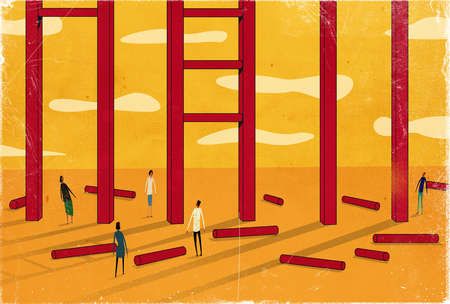How to Overcome Social Anxiety and Shyness Fast

A fear of being judged or criticized by others is the core symptoms that defines social anxiety. It doesn't matter whether the person suffering anticipates the criticism will be vocalized out loud or just keep in silence by those around them; the fear is they will be judged or rejected, on some level, by others. This results in the person suffering with social anxiety starting to become anxious and experiencing uncomfortable physical sensations (i.e. fast heart beat, shaky, feeling warm, shallow breathing, feeling self-conscious/awkward) when they anticipate certain social interactions, during them and a lot of times reviewing interaction in their mind afterwards.
When treating clients with social anxiety, I help them understand how their automatic thoughts, bodily sensations and behaviors influences their emotions when anticipating and during social situations. We work together to identify bodily sensations they experience that make them feel uncomfortable and make them want to avoid the social interaction. One of the most uncomfortable sensations clients share time and again is the fear of feeling "awkward;" being in a social setting unsure of what to say, and whether to push yourself to say something or to sit back and allow the other person to try and fill the lull in the conversation. When examining peoples' thoughts, I provide psychoeducation on the different common thinking errors those with social anxiety struggle with, including: mind reading ("being sure" of what others must be thinking) or social perfectionism (believing we need to get some social interaction "just right" in order to avoid being rejected. I consider the most deadly of the thinking errors to be discounting the positive. When someone struggles with the discounting the positive thinking error, it typically starts with people having had a positive social interaction or being praised by someone but still not allowing ourselves to believe it was "good enough." For example, this could look like someone with social anxiety taking the brave step of initiating a conversation with someone new at a party and at the end of the conversation being told, "Thanks for talking with me, it was good to get to know you." But the discounting the positive thinking error jumps in and tells the person suffering, "Even though that person said those nice words, you can't believe them, they just said that to be nice." Unfortunately this just creates an endless loop of never being able to build a sense of confidence or safety in social situations with these thinking errors.
In treatment we work on identifying these sensations and finding ways to practice relaxation techniques to decrease their intensity or practice tolerating their discomfort. With our thoughts that perpetuate the social anxiety symptoms we practice challenging them looking for evidence that supports or contradicts our thinking errors or disengaging them, by focusing on our attention on connecting with the other people in the room or our values we want to live out.
However, for people looking for a way to make fast progress with their social anxiety, my advice is skip the all the work with your thoughts and bodily sensations and just focus on your behaviors. In a word the best way to make fast progress is to "move" and start finding ways to socialize. When the world started to open back up from the lockdown of the pandemic, I had a huge increase in people coming to me to get help with social anxiety. What I heard a lot of was people explaining that they felt uncomfortable in social situations again because they had fallen out of practice; it was just not a part of their everyday lives and now getting back into these situations felt uncomfortable for them. My encouragement is to use this same concept to our advantage, for those who want to boost their confidence and comfort in social situations, unfortunately there is no replacement for experience. Finding ways to repeatedly be in social situations is the best and fastest way to overcome your social anxiety.
My encouragement would be to create a social anxiety hierarchy or ladder and list out all the different socially triggering situations you can imagine and then rate them on a scale from 1-10 (1o being the scariest). Then start pushing yourself to expose yourself one or two of the lowest intensity triggers repeatedly. Doing a single exposure repeatedly is much more effective than even doing a much higher level anxiety trigger only once. I encourage clients to expose themself to the triggering situation until they feel bored of them. This is your sign that you're ready to move on to the next, slightly more intense, triggering situation.

My last piece of advice is to start small, and sometimes this means really small. I practice a technique called imaginal exposure with clients where they write out a script of an uncomfortable social situation and practice retelling themselves this story over and over until they desensitize to it and their anxiety no longer responds when telling the story. Sometimes when people struggle with social anxiety they feel watched by others in public places, even while doing mundane tasks (i.e. getting groceries or walking in the hall). Practicing picking your head up and making eye contact with others or wearing clothes that make you feel more noticeable could be a small step on someone's anxiety ladder. Starting to say "hi" while walking past someone in the hall (to deter further conversation) could be a small step. I cannot tell you the number of clients that I have seen make dramatically fast improvements overcoming their social anxiety by repeatedly doing small exposures (i.e. going to class, saying "hi" to others, answering teachers' question in class, attending volunteering meetings, getting a service job). If doing these small exposures repeatedly does not seem to be producing the results you are hoping for then you can always go back and look for some underlying thinking errors that might be sabotaging the process.
